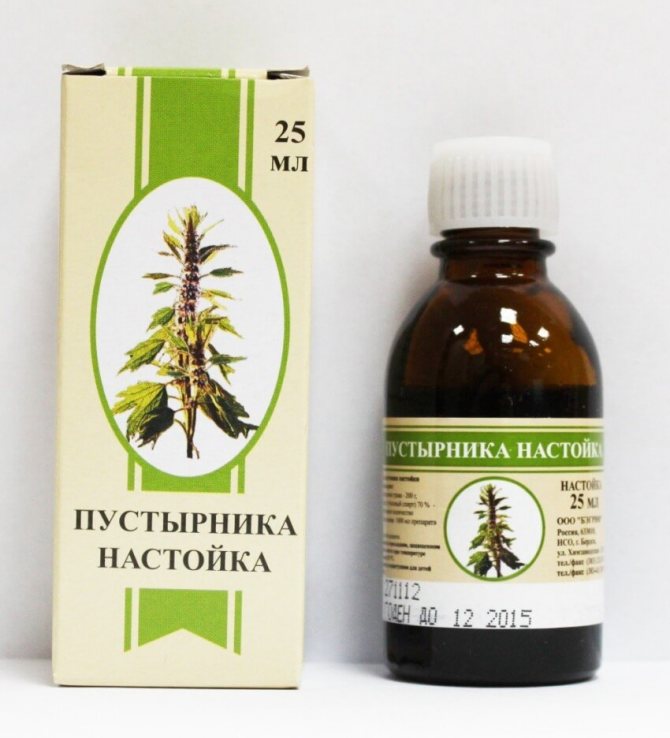Postpartum depression
Many young mothers remember with a smile the first months of their child’s life, others miss their tummy and the happy period of pregnancy - all people are different, and reactions, accordingly, may differ.
After childbirth, approximately 10-15% of women try to cope with depression, but only 3% are diagnosed with postpartum depression by a doctor, after which appropriate treatment is prescribed. In this case, only sedatives for nursing mothers will no longer help, and sometimes hospitalization is completely inevitable.
Causes of stress in young mothers
The birth of a child is a great happiness that every woman experiences. But a child not only brings happiness and joy to the family, but also causes anxiety, worry and stress. A woman may also experience postpartum depression. This condition can last from 2 weeks to 2 months and appears even in normal living conditions. Psychotherapists note several reasons why stress appears.
- Restructuring of hormonal levels. For 9 months and during childbirth, a woman experiences a strong hormonal shock, during which endorphin is released in large quantities. This hormone appears in large quantities and works as painkillers during childbirth. The joyful state after the birth of a child does not last long; it can be replaced by irritation and apathy.
- Reaction to changes in the family. When a child is born, especially the first one, it completely changes the life of new parents. The woman is immersed in caring for him and does not devote much time to her husband. This behavior can negatively affect family relationships, which leads to stress.
- Help from relatives. A woman may not be able to cope with a newborn baby on her own, and therefore she needs help. The first people who are ready to help are grandparents and sisters. But the active participation of relatives can negatively affect a woman’s nervous state. As you know, the older generation tries to help and thereby begins to educate the young mother. Not everyone will like this behavior, because a woman wants to take care of her baby herself and raise him the way she wants. Such help can cause uncertainty and stress.
Stress for a young mother
Allowed sedatives
The above does not mean at all that a nursing mother has no chance to balance her nervous system in any other way than by engaging in auto-training and self-hypnosis. There is a range of medications that are allowed during breastfeeding.
Important: Ideally, a nursing woman should agree with her doctor that any medication she takes – even the most harmless herbal decoction!
| Name of the sedative | What effect does | How to use | Opinion of lactation consultants |
| Mint – herbal mixture | Mild sedative, normalizes digestion | In the form of mint tea, or with the addition of chamomile | Mint can reduce the amount of milk, should be taken with caution |
| Chamomile – herbal mixture | Mild sedative, taken for hysterics, insomnia, increased anxiety | In the form of tea, no more than 1-2 cups per day | May have a positive effect on a child's digestion, but should not be overused |
| Melissa - herbal tea | Calms, helps cope with insomnia | In the form of tea or decoction, with the addition of mint | Enhances lactation |
| Motherwort – herbal mixture, tablets | Pronounced sedative and relaxing effect, does not cause drowsiness | Tablets: one 2 times a day for several weeks | Do not exceed the indicated dosage, carefully monitor the child’s condition |
| Valerian – herbal tea, tablets | Pronounced sedative effect, normalizes sleep | Tablets: one three times a day for several days | If the dosage is exceeded, it can cause anxiety in the mother and nervousness in the child. |
| Glycine - tablets | Calms, normalizes sleep, eliminates feelings of depression and depression | One tablet three times a day for a long time | Can be prescribed even to infants and has virtually no contraindications |
| Novo-Passit – medicinal syrup | Effectively relieves nervous tension, normalizes sleep | 1 tsp. three times a day | Use with caution, may suppress lactation |
| Notta – homeopathic tablets or drops | Increases the ability to withstand psycho-emotional overload, normalizes sleep | 1 tablet or 10 drops three times a day for 1-2 weeks | Can be prescribed even to infants, it is safe |
| Alora – homeopathic tablets or syrup | Effective for neuroses, stress conditions, insomnia | 1 tsp. or one tablet three times a day | No studies, theoretically safe |
| Nervohel – homeopathic tablets | Helps reduce nervous excitability and irritability, improves sleep | 1 tablet three times a day | Virtually safe for children |
Important: To achieve a lasting sedative effect and stabilize the nervous system, a young mother may need a fairly long course of taking these medications. You should not expect an immediate effect.
A nursing mother may be confused by the fact that most instructions for these drugs do not contain clear data on their safety during pregnancy and lactation. This is easily explained: after all, drugs have not been tested on pregnant and lactating women, so there is simply no statistical information about their effect. Theoretically, these drugs cannot cause serious harm to the baby’s health, but the following side effects may occur:
- decreased lactation;
- lack of visible sedative effect after several days of use;
- worsening anxiety, nervousness or insomnia in the mother;
- allergic reactions in mother or child;
- indigestion in a baby;
- sleep disorders, causeless crying and whims in the child.
If such symptoms appear, the drug should be stopped immediately.
Video - taking medications during pregnancy and breastfeeding. School of Doctor Komarovsky
When is it necessary to consult a doctor?
Sometimes, in order to normalize frayed nerves and a depressed psyche, a young mother may need to consult a psychotherapist. As a rule, this is associated with the development of so-called postpartum depression. In this case, mild sedatives allowed during breastfeeding do not help, and you have to turn to “heavy” medicinal artillery in the form of antidepressants.
Important: Antidepressants should be prescribed exclusively by a doctor! You cannot self-medicate, purchase or take any sedatives that are not of herbal origin!
Only a doctor, having studied the condition of his patient, can come to the conclusion about the need to prescribe her antidepressants - selective serotonin reuptake inhibitors. Most likely, breastfeeding will have to be stopped during treatment. But in this case, this is not the main thing, but the condition of the young mother, the opportunity to return to her the joy of motherhood, the ability to fully communicate with her baby and care for him.

Consultation with a doctor is necessary if the following signs of postpartum depression are constantly observed for a long time (about a month):
- low mood, tearfulness and irritability for no apparent reason;
- weakness and reluctance to do anything, including caring for the child - the young mother does everything “through force”, forcing herself and not experiencing the joy of communicating with the baby;
- decreased or sharp increase in appetite;
- insomnia or constant drowsiness (even with full sleep);
- Mom feels worthless, guilty, distances herself from people close to her, nothing brings her joy and pleasure.
Symptoms and influence of external factors
- lack of strength,
- feeling of sadness and sadness,
- anxiety with panic attacks, headaches and increased heart rate,

- insomnia,
- loss of appetite,
- tearfulness,
- feeling of loneliness,
- depressed mood.
In this state, girls and women very often feel shame and consider themselves bad mothers, because they cannot fully feel the joy of the birth of a baby.
Can breast milk disappear under stress?
Breastfeeding a baby is a natural process that has a beneficial effect on the baby’s health. If a woman is often nervous, milk may disappear. In this case, milk secretion is usually disrupted. Oxytocin is responsible for the release process. When the stress hormone suddenly begins to be released into the blood, the female body begins to actively defend itself and at the same time stop the supply of milk.
Stress may be present in a woman all the time, but this does not mean that milk may disappear forever. After a short time, the body returns to normal, gets used to stressful situations and gradually restores milk production.
Constant contact of the woman's breasts with the baby will help to quickly return milk.
Strengthening negativity
- weak support from husband and family,
- difficult pregnancy,
- complications during childbirth,
- low socio-economic status,
- age over 40 years,
- alcoholism,
- lack of a permanent place of work or its complete cessation at the beginning of pregnancy,
- tendency to depression.
There is no doubt that postpartum depression harms not only you, but also your baby. You need to urgently consult a doctor and find out what sedatives nursing mothers can take.
In our country, unfortunately, this disease is rarely detected. A woman suffering from depression has no interest in interacting with her baby, which he so needs. Such children literally “absorb with milk” a tendency towards states of increased anxiety, suffer from low self-esteem and have difficulty expressing feelings.
How do medications affect lactation and the child?

Many breastfeeding women, when choosing a sedative, prefer herbal remedies. Although they are safe, they should be taken with caution. For example, mint reduces milk production. And a plant like fennel, on the contrary, increases it. Valerian and motherwort calm the woman and do not reduce breast milk production.
Mint – reduces lactation. Fennel and lemon balm - increase. Valerian and motherwort are neutral.
The effect of the sedative extends not only to the mother, but also to the baby. Depending on the dose of the medicine that the mother takes, its concentration in breast milk can vary from zero to harmful to the baby’s health.
Monitor the baby's condition while taking sedatives. He may develop allergies, insomnia, digestive disorders, and nervous system disorders. If any changes are detected in the behavior or health of the child, you should stop taking the drug and consult a doctor.
Side effects
Many sedatives contain alcohol: a nursing mother does not have to refuse such medications, but they can only be taken as a last resort, as prescribed by a doctor.
We should not forget about the side effects that can occur after a woman uses sedatives. This:
- decrease or disappearance of lactation;
- allergic reaction in mother or baby;
- digestive and sleep disorders in a child.
Treatment of stress in nursing mothers
Experienced mothers know that during breastfeeding a woman experiences opposite emotions.
On the one hand, the feeding process itself is calming and peaceful. On the other hand, worries and fears overwhelm a woman. She is worried about many questions:
- when lactation is established;
- will the baby have enough milk or how to cope with its abundance;
- how to guarantee avoidance of lactostasis;
- when a stable natural feeding schedule has been developed.
These and many other questions do not contribute to peace of mind.
The situation is complicated by the fact that the woman’s life has changed completely, everything is new and unfamiliar. Hormonal imbalance also adds fuel to the fire. And this is without touching on the topic of postpartum depression - not such a rare phenomenon as it seems at first glance.
During the period of breastfeeding, a woman needs to pay special attention to her diet and products that calm her nerves. As you know, the nervous system is quite complex, and if it is severely damaged, it is almost impossible to restore it. If a woman takes only pills, they will not help her; she also needs to work on herself.

First you need to determine the reason for the stress and try to solve the problem yourself. Basically, this technique works well, and in a short time the nervous system is restored. Taking a sedative during breastfeeding is only possible in extreme cases.
A woman can control her emotions during lactation if she meets the following conditions:
- There is no need to give up on yourself after the birth of a child, you need to try to find a little time for yourself: read books, do what you love and go to beauty salons - such a little rest will help you calm down, relax, and restore a charge of vigor and energy;
- proper nutrition and hygiene: no matter how hard the day is, you need to remember about food, water procedures and normal sleep - when a woman puts her child to bed during the day, you can lie down with him and rest;
- a woman should share her problems with relatives and friends, there is no need to accumulate problems within herself, the time will come and they will break out, which will lead to negative emotional consequences;
- do not forget to live correctly: with the birth of a child, no one canceled the rules in the house and in the family;
- You can try taking herbal infusions and decoctions that will be useful for a nursing mother and baby: tea made from lemon balm, chamomile or St. John's wort.

Melissa tea helps you calm down
If the above tips are not helpful, you should seek help from a doctor.
What sedatives can breastfeeding women take?
When you are at the very beginning of the road to nowhere, you can bring the shaken nervous system into balance and at the same time get enough sleep, which is important for gaining balance, you can take sedatives. Be sure to find the reason for your prolonged “bad mood.” If it is impossible to eliminate it, then try to change your attitude towards it. Otherwise, sedatives will have a short-term effect, and everything will repeat all over again.
So, conditionally approved sedatives for breastfeeding are mild sedatives (sedatives) that reduce emotional stress without a hypnotic effect, but due to their sedative effect, facilitate immersion in a natural, deeper sleep. They have few side effects, so they can be taken with caution while breastfeeding.
Runny nose in pregnant women - how to treat it correctly?
Caution means the first sample in an amount lower than that recommended in the instructions for the drug. If within 2 days after taking the child there is no diarrhea, allergic reactions or other causes for concern, then the dose should be repeated in a dosage not exceeding the prescribed one and the baby should be monitored again. If everything is normal, then the chosen sedative can be taken with minimal risk to the baby.

Such sedatives include herbal and complex preparations, which are also based on natural ingredients. Their effect is not immediate, and the effect of their use can only be felt with regular and long-term use.
What sedatives or sedatives are available? Valerian root - the well-known valerian, motherwort, mint, herbal soothing teas. Among the complex ones, a popular sedative for nursing mothers is Persen. Persena contains valerian, lemon balm and peppermint. And although the instructions for the drug include the period of breastfeeding as a contraindication, its use by a nursing mother is possible in the absence of obvious reactions in the baby, subject to the precautions described above in taking it.
It is also possible to take novopassit while breastfeeding, but only if prescribed and under the supervision of a doctor. It also contains herbal components - valerian, lemon balm and 5 more herbs, and it is necessary to check the individual tolerance of both the nursing mother and the breastfed child.
Another sedative allowed for nursing mothers is glycine. But you need to keep in mind that in some cases, as practice shows, the drug has the opposite effect. If a breastfed baby shows increased excitability, then it is better to stop taking it.
If none of the above helps, then do not solve your problem alone and try to visit a neurologist or psychologist. A specialist must decide which drug is suitable. You may be prescribed a stronger one, or offered alternative non-drug remedies. To check the compatibility of the prescribed drug with breastfeeding and the degree of risk for the child, we recommend the website https://www.e-lactancia.org.
Can Bioparox be used by women who are breastfeeding?
How to help?
The first months with a newborn are a period of lack of proper sleep. Some children are restless. Tummy pain, constipation, weather changes - all this greatly affects their mood.
Caring for a child, washing, cooking and other women's duties take up a lot of time, and we completely forget about ourselves. Passing by the mirror, we notice a far from slender figure, bags under the eyes and “something incomprehensible on the head.” Where can you get a positive attitude?

The first thing to do is pull yourself together. Don’t rush to run to the pharmacy and sweep all sedatives for nursing mothers off the shelves. Try going without medication first.
Approved medications for women
Many women drink sedatives while breastfeeding. A correctly selected drug does not pose any danger to a nursing mother. Today you can freely buy sedatives without prescriptions. Experts recommend thinking things over before you start taking these medications:
- Valerian tablets. Valerian is a herbal preparation that is prepared from the stems of the plant. It is quite well known because it is not harmful to health. A nursing mother is allowed to drink this sedative. The tablets have no side effects. But it is worth knowing that the medicine contains essential oils, tannins and amino acids. Such substances have a sedative effect on the human body. Therefore, infatuation with them can lead to increased stress: a person will become more nervous and anxious. It is recommended that women take valerian from the first 2–3 months after the birth of a child, in the amount of 8 g per day. Valerian is sold in tablets and liquid form.

Valerian - Calming herb – motherwort.
Motherwort is a heart remedy. It relaxes the nervous system and has positive effects on the heart. The wasteland has no side effects, so it can be taken by nursing mothers. But it takes effect after 2 weeks of use. Motherwort does not contain sedatives, since the product is not a medical drug. But there is no need to buy motherwort in the form of an alcohol tincture, because alcohol slows down the production of breast milk. Motherwort - The drug Novo-Passit. This medicine contains 7 strong plants: lemon balm, St. John's wort, hops, elderberry, valerian, passionflower. It should be taken during breastfeeding only after the recommendation of a doctor. The drug has not been studied, so no one knows how it will affect breast milk and the health of the baby. It is prescribed only when absolutely necessary. Many experts still recommend using it, but strictly following the instructions and doses.

Novo-passit is a popular sedative - The drug Persen. This medicine contains several medicinal plants. These are mint, valerian and motherwort. This sedative can be taken by breastfeeding women, but after consulting a doctor. The conditions for use state that this medicine should not be used during pregnancy and breastfeeding. But often women use this particular medicine in much smaller quantities. If a woman drinks the doses indicated in the instructions, her milk may disappear.

Persen contains peppermint, valerian and lemon balm
Very often, women who breastfeed use 2 homeopathic remedies - Nervohel and Valerianahel. Such drugs can be purchased in drops and tablets. It is advisable for a woman to take tablets, since the drops contain alcohol, which can reduce the amount of milk. It must also be said that many doctors prefer these medications during breastfeeding. This is due to the fact that the tablets have no restrictions or side effects.
First of all, naturally, it is better to use sedative procedures that are not associated with taking any medications, since they do not have any side effects on the body of a nursing mother and will not harm the baby, while many sedatives are prohibited during breastfeeding.
- Various relaxation techniques associated with mental training have proven themselves very well. These are meditation, yoga classes at home and other methods of self-hypnosis and control of emotions. So there are a lot of proprietary relaxation techniques, for example, autogenic training, when a person mentally does exercises every day.
- The so-called Charcot circulatory douche (preferably contrasting) is quite effective in influencing the nerves during breastfeeding. Of course, this thing cannot be in every home, but if you wish, you can sign up for it at any physiotherapy department of your local hospital. In addition, if necessary, it can be replaced with a regular contrast shower, just make it softer, since a sharp change in very hot and ice water can have a detrimental effect on the lactation process. But changing from cool to hot will give the desired relaxing effect without harming milk production.
- You can try a relaxing massage, both local and full, of the whole body (special attention should be paid to the back, neck, legs). If a woman does not have the opportunity to sign up for a professional massage parlor or massage therapist, she can ask someone close to her. In principle, this procedure does not require special qualified training.
There are many more ways to relieve negative emotions that allow you to avoid taking sedatives for nursing mothers, but various medications also play a significant role.
Which sedative should a nursing mother choose?
It is prohibited to start using sedatives on your own while breastfeeding.
Important! Only the doctor selects the drug and sets the required dose and course duration in accordance with the indicators of the nursing mother’s condition.
Motherwort
When breastfeeding, the mother can use a natural sedative - Motherwort. It has no side effects, except for individual intolerance. The action appears slowly, the effect of taking it occurs by the 3rd week.
Since the effect on feeding and the structure of natural food has not been fully studied, it is not recommended to take it for a long time and only the prescribed doses should be used. It is not advisable to use alcohol; preference is given to the drug in the form of pills.
Valerian
Valerian root has a rich composition. This remedy has no recorded negative manifestations, unless you increase the recommended dose and duration of the course. If the volume of consumption is not observed, the infant may experience: diarrhea or constipation, being in an excited or calm state, poor sleep, accumulated alkaloids that can cause disruptions in the heart, allergic reactions. The result does not come immediately, but it has a stable, long-lasting effect, it is important to wait for it and not increase the dose.
Valerian is also recommended for external use: in aromatherapy, added to base oil during massage, and rubbed on temples.

Persen
A combined remedy containing the two above components: motherwort, valerian and mint. But the instructions contain a warning about use during breastfeeding, since the product contains mint, which helps reduce milk production. Although these data have not yet been fully confirmed. But mint is included in the list of plants that are carefully taken by a nursing mother, so menthol esters penetrate into the baby’s food, affect the baby’s heart function and change blood pressure.
Novo passit
An even more complex remedy consisting of seven herbs. The instructions say that it is not intended for use during lactation. But there is no reliable information about the ability to penetrate into the natural food of infants.
Glycine
Glycine helps normalize metabolic processes and regulates metabolic processes in the central nervous system. It is applied for:
- improved sleep;
- eliminates symptoms of nervousness and excessive fatigue;
- increases brain function;
- improves metabolic processes.
Use is permitted while breastfeeding. Substances that penetrate into a baby’s food in a small volume are not capable of causing significant harm to him.

On your own
Here are some simple ways that will help you improve your mood without medications and remember your loved one:
- We ask for help. Yes, you have become a mother, but this does not mean that caring for your child lies entirely on your fragile shoulders. Dad, grandparents, aunts, uncles and other relatives - involve everyone who is ready to help you. After all, a walk in the fresh air does not require special skills in handling a baby.
- We rest more. Washing, cleaning and cooking are, of course, important things. But when choosing between two hours of sleep and a vacuum cleaner, it’s better to go with the first one. If you have a serious lack of sleep, then go to bed with your baby.
- Let's remember ourselves before pregnancy. What did you like to do before you found out that you would soon become a mother? Hobbies, sports, meeting with friends or shopping - do not suffer from remorse and take time for yourself at least a couple of times a month.
- Going to the doctor. There is a lot of information in various sources about sedatives for nursing mothers, but we encourage you to contact professionals, especially when it comes to more serious antidepressant drugs. Do not hesitate to bother the doctor, because the baby has only one mother, and she should be healthy.
Proven method
Unfortunately, regular tea drinking is not always enough to find harmony and tranquility. Many girls and women, on the advice of doctors, prefer a proven remedy - valerian. It successfully copes with mild mental disorders, has a minimal number of side effects and does not affect the quality of breast milk.
- drops,
- calming pills.
For nursing mothers, taking drops is strictly prohibited. Of course, they work much faster, but the alcohol content is still cause for concern. Another option is to brew valerian root yourself.
How does it affect?
Taking the drug should be monitored by two specialists at once: a pediatrician and the young mother’s attending physician. When using valerian, the baby's condition may change - sleep time increases or relaxation and lethargy are observed when sucking.
Valerian should not be taken by hypotensive patients: blood pressure drops even more, which can lead to lethargy, weakness and loss of consciousness. In case of individual intolerance, a woman experiences an allergic reaction; in rare cases, the opposite effect is observed - sleep disturbance or nervous overexcitation.
It is believed that valerian is not the most effective sedative for nursing mothers. Very often, doctors prescribe it along with other drugs, which we will talk about later.
Rules for taking sedatives
Sedatives sold in pharmacies will help stabilize the emotional background after childbirth. But not all of them are allowed for a nursing mother.
Approved products for breastfeeding
Drugs allowed during lactation include:
- Valerian. It is better to take it in tablet form. A nursing mother is allowed 1–2 tablets per day, no more. You need to drink valerian in courses of 10 days. Then be sure to take a break and, if necessary, repeat. The drug is very well tolerated, there are no side effects . Valerian not only calms the nerves, but also improves sleep. In case of overdose, dizziness, lethargy, and drowsiness may occur.
- Motherwort is also sold in tablet form. The drug is completely natural and harmless. They also take it 1-2 tablets a day, not as a course, but as needed. Motherwort improves overall well-being and sleep, has a positive effect on heart function and normalizes blood pressure, and has an anti-edematous and hemostatic effect. Motherwort, like valerian, can be taken in the form of a decoction. For this, 1 tbsp. a spoonful of dry collection is poured with 1 glass of boiling water, infused and taken 2-3 times a day, 1 tbsp. spoon.
- Mint, lemon balm, verbena. All of these herbs also have a calming effect and improve sleep. It should be remembered that mint during breastfeeding can reduce the amount of milk. Verbena and lemon balm, on the contrary, enhance lactation. You can add chamomile and nettle to this tea, as well as a little honey.
- Glycine is one of the safest sedatives. It is even prescribed to newborn babies for sleep problems. Take glycine 1-2 tablets up to three times a day. The tablets must be dissolved until completely dissolved in the mouth. Allergic reactions in the form of rashes and skin itching are possible as side effects.
- Novo-Passit. This drug includes a complex of medicinal herbs. But, in addition, the product contains additional chemical compounds and dyes. Novo-Passit has a pronounced sedative (calming) effect, normalizes sleep, and improves the general condition of the body. Its use during breastfeeding is possible only after consultation with a doctor . The drug can cause allergies in the child and, if possible, it is better to replace it with a safer drug.
- Persen is a herbal preparation containing excipients - stabilizers. The active components of the drug are extracts of valerian, lemon balm and mint. They cause a sedative and antidepressant effect and increase the activity of the body's immune system. Taking Persen while breastfeeding is also not advisable and is possible only after consulting a doctor.
- Nervohel is a homeopathic medicine that contains: Ignacia bitters extract, phosphoric acid, valerian-zinc salt, cuttlefish ink, etc. The medicine is prescribed for increased anxiety, mood swings, depression, and lack of good sleep. Possible side effects include an allergic reaction in the form of itching and skin rash. Nervochel can be used during breastfeeding only after consultation with a doctor.
Photo gallery: drugs allowed during breastfeeding
Novo-Passit is used during breastfeeding after consultation with a doctor Persen - a sedative of plant origin Valerian is good at calming the nerves and improves sleep Glycine - one of the most harmless sedatives Motherwort perfectly calms and improves overall well-being
The most harmless drugs are considered to be tablets of glycine, valerian and motherwort. There will be no harm to the baby from taking them. But their effect is somewhat lower than that of Novo-Passit and Persen, for example. It all depends on the degree of nervous tension of the nursing mother. If possible, it is better to limit yourself to mild medications.
Prohibited means
When breastfeeding, it is strictly forbidden to use alcohol tinctures of any herbs. Since the alcohol contained in them passes into breast milk and can negatively affect the baby’s health. Nursing mothers can take herbs only in the form of tablets or decoctions.

Alcohol tinctures of herbs should not be used during breastfeeding.
Also, the following are considered prohibited drugs:
- Tenoten. This is a medicine with an anti-anxiety, calming effect. Tenoten helps to better tolerate emotional stress and stress. The drug is prescribed for increased nervous excitability, stress, depression, and neuroses. Taking the product is allowed only from 18 years of age. The safety of taking Tenoten while breastfeeding has not been studied, so it is better to replace it with a more proven and safe one.
- Afobazole is a fairly strong sedative. It is used for increased irritability, a tendency to depression, frequent feelings of anxiety, and sleep disorders. The drug is absolutely contraindicated during pregnancy and breastfeeding, as it directly affects receptors in the nerve cells of the brain.

Afobazole is contraindicated during breastfeeding
In some cases, the doctor may prescribe Tenoten for a nursing mother. This happens if the benefit to the mother is higher than the risk to the baby. Afobazole is practically not used during breastfeeding.
Motherwort
- Pills
— Filter bags for brewing
— Alcohol tincture (contraindicated during lactation)
When motherwort will help you:
- For insomnia. Overwork, internal worries and hormonal changes sometimes interfere with normal rest. A new mother doesn't have much precious time. With regular use, motherwort will certainly improve your sleep.
- With high blood pressure. During lactation, nervous excitement and headaches “give up without a fight” thanks to motherwort.
- With difficulty breathing and tachycardia. Frequently carrying a baby in your arms or lifting a stroller can sometimes throw off your heart rate.
Prohibited drugs during lactation
Persen ®
Available in tablets. Persen is indicated for nervous excitability, irritability and insomnia. This product contains valerian, mint and lemon balm.
According to the instructions, the use of the drug during pregnancy and lactation is contraindicated: this is due to the presence of mint in its composition, which can reduce lactation. In addition, the menthol contained in mint, passing into breast milk, can reduce the baby's blood pressure and disrupt the heart rhythm.
Novo-Passit ®
Available in the form of syrup or tablets. Novo-Passit contains: lemon balm, hawthorn, St. John's wort, passionflower (passionflower), valerian, elderberry and hops. Indicated for irritability, anxiety, absent-mindedness, insomnia, headaches.
When using the drug during lactation, breastfeeding should be discontinued.
"Glycine"
The well-known drug “Glycine” is another answer to the question of what sedatives can be used for breastfeeding women. This is a protein amino acid that is easily absorbed by our body.
- regulation of metabolism,
- relieving fatigue and psycho-emotional stress,
- reduction of excitability and nervousness,
- increased mental performance,
- normalization of sleep rhythms.
The drug has a cumulative effect (course of treatment is 2-4 weeks), so its use must be under the supervision of the attending physician. Sometimes “Glycine” is prescribed to newborns for restless sleep, so a small amount of the substance entering through milk will not cause harm.
"Persen"
Many people believe that Persen is a good sedative for nursing mothers. One of the main advantages is the natural composition, which contains extracts of valerian, lemon balm and peppermint.
Despite mint, which can affect the process of breastfeeding, experts recommend the drug as a sedative for nursing mothers.
- insomnia,
- increased nervous excitability,
- irritability.
The drug does not have a cumulative effect, it calms you within half an hour after taking it. Does not affect the ability to drive a car.
Folk remedies, children's teas, herbs
Some medicinal herbs also have a calming effect. They can be mixed, brewed and drunk instead of regular tea. Such herbs are:
- Mint. It has a slight calming effect and helps normalize digestion. It is brewed with chamomile and drunk as a soothing tea. Doctors recommend that nursing women take mint with extreme caution, as it reduces lactation.
- Chamomile. It has a slight calming effect, helps with hysteria, insomnia, and increased anxiety. Chamomile has a positive effect on the baby's digestive system, but it should not be abused. Breastfeeding women can brew it and drink it instead of tea, but during breastfeeding they can consume no more than 1-2 cups a day.
- Melissa. An excellent antidepressant. Melissa calms, relaxes, helps with headaches and insomnia, and treats nervous disorders. To make lemon balm tea, you need to brew one tablespoon of the herb in a glass of boiling water. Leave for half an hour. Drink warm tea before bed. Melissa is not recommended for nursing mothers with low blood pressure.
- Green tea. Used as a base for soothing teas. Herbs are added to green tea when brewing. Note that green tea contains a large amount of caffeine, which can cause sleep disturbances and overstimulation of the nervous system. Drink no more than 2-3 cups per day.
- Children's soothing teas. The most common are “Granny’s Basket” and “Hipp”. Approved for use by both children and nursing mothers. Due to their herbal composition they are safe. They have a calming effect.
- St. John's wort. Prohibited during breastfeeding. Breast milk becomes bitter when taken. This sedative negatively affects the child’s digestive system and disrupts his intellectual development.
- Lavender. It is better to refrain from using it. Lavender is contraindicated during pregnancy and breastfeeding. Allergic reactions may occur.
Should I accept it or not?
Sometimes loneliness becomes an outlet. Half an hour of silence, a relaxing bath with essential oils or a walk in the fresh air - all this will help relieve some stress, distract you and put your thoughts in order. Ask your husband for a light massage or just spend time together.
New mothers struggle to maintain breastfeeding. During this period, taking any medications, even herbal ones, is undesirable. But if you feel that you are living at the limit, then it is advisable to contact a specialist. A competent doctor will assess your emotional state and select the appropriate sedative.
Remember that many girls and women face problems in the first months of motherhood. Usually we are ashamed of our weakness and embarrassed to ask for help even from our loved ones, but it is very difficult to cope with problems alone. Only a calm and happy mother can fully give affection and love to her baby.
Analogs from traditional medicine
During breastfeeding, it is recommended to use non-traditional sedatives, which consist of natural ingredients and, when used properly, do not have a harmful effect on the nursing mother and baby.
List of drugs that can replace medications
When breastfeeding, as a sedative, the mother can use:
- infusions of herbs and consumption of teas that have a calming effect;
- aromatherapy;
- massage treatments and baths using aromatic oils.
Soothing teas - recipes
There are specially formulated herbal teas for mother and baby on sale. These include products with mint and fennel, dill water, etc. It is recommended to take decoctions and infusions instead of tablets. The preparations are sold in pharmacies or you can prepare them yourself. These include:
- valerian (root);
- passionflower;
- motherwort (inflorescences);
- Melissa;
- mint.
Important! Mint has a suppressive effect on lactation, so it is advisable to exclude or minimize its use.
Herbs are brewed according to the instructions, since changing the dosage and brewing time has a negative effect on the body. It is recommended to brew fresh infusions every day.

How do they affect the body of mother and baby?
All herbs, if the dosage is changed, have side effects on mother and baby:
- cause allergies;
- the baby may refuse to take the breast;
- the baby becomes lethargic, inactive, and may sleep for a long time;
- some herbs have the opposite effect: they increase excitability and disrupt sleep.
If a negative reaction is noticed, you should stop taking it and consult a specialist.
Acceptable sedative during breastfeeding
Do not be embarrassed or experience a maternal inferiority complex if you take sedatives while breastfeeding. A child needs a calm, balanced mother who is confident in her actions. According to research, children of depressed mothers who experience constant stress gain weight worse and, consequently, develop less well. The lactation period in such women is shortened; they transfer their children to artificial feeding early.
Yes, help from loved ones and attention are important for the mother of an infant. But in addition to this, in some cases, approved sedatives are needed. Moreover, a number of drugs for the mother are generally safe for the baby, while others have shown low or very low concentrations in the baby’s blood plasma.
You can take the following drugs during breastfeeding:
- Valerian. A herbal medicine that has a calming effect on the nervous system, relieves muscle tone and spasms, dilates blood vessels, reduces blood pressure and normalizes pulse. It has a beneficial effect on sleep and relieves pain due to its antispasmodic effect. It is taken in the form of water tinctures and tablets. Breastfeeding mothers are not allowed to take drops in an alcohol solution.
- Motherwort. The sedative is made from plant materials; the drug from motherwort is harmless for breastfeeding infants. We use it in the form of tablets, aqueous solutions, but alcohol tincture is contraindicated. Motherwort has a sedative, antispasmodic, vasodilating effect due to its rich content of alkaloids. These nitrogenous compounds contained in plants interact with nerve cells and have a systemic effect.
- Glycine. This amino acid has a nootropic effect, that is, it affects higher neuropsychic functions. Reduces anxiety, has an antidepressant effect, improves brain function, in particular memory and attention. Its protective effect is also known during periods of increased physical, emotional and intellectual stress. While maintaining the emotional stability and composure of the mother, glycine does not affect the newborn’s brain.

- Light sedatives based on plants such as Alora, Persen and others. Lactation is not a strict contraindication for their use, since the composition is based on the same medicinal herbs. Some experts advise choosing single-component preparations rather than those containing many different herbs. For example, mint in Persen can reduce lactation.
- Homeopathic sedatives are not contraindicated during breastfeeding, because the active ingredient in their composition is in extremely small doses. There are various drugs like Nervohel, which are taken outside of meals according to a certain schedule.
- Modern medicine believes that some synthetic medications used in the treatment of depressive conditions are also relatively safe for babies. This series includes substances that increase the amount of natural neurochemical serotonins in the brain, increasing tone and mood, reducing anxiety levels, and eliminating irrational fears. Studies have shown that a number of drugs have a low risk of toxicity to the infant. But they should be prescribed exclusively by a doctor.
It is very important to be responsible about what kind of sedative a woman will drink while breastfeeding. Independent choice of a drug can lead to allergic reactions in the newborn, and this, in turn, will worry the mother and increase stress.
Thus, the result of the sedative drug will not be fully achieved; moreover, it can harm the baby when feeding. In order to find out what kind of sedative you need, you should consult a doctor who will analyze information about all the characteristics of your body and will be able to correctly select the drug itself, the dosage, and the duration of taking the medication.
What sedatives can mothers take while breastfeeding? Of course, these are products that contain natural herbal ingredients with non-aggressive action. The list of drugs that are allowed for hepatitis B is as follows:
- Valerian is the absolute leader in sedatives in terms of availability, safety and price. Valerian does not have a negative effect on the child, it can be taken during pregnancy, but you should not take more than one tablet per day.
- Motherwort is a natural remedy that should not be used systematically, but at a time when you urgently need to calm down. This drug does not cause drowsiness, which is its advantage. It should be remembered that motherwort can be taken in the form of tablets during feeding, but in no case in the form of the famous alcohol tincture, which can negatively affect the child’s condition.
- Glycine is one of the safest drugs, which is prescribed in small doses even to infants for restless behavior. A contraindication for taking this drug may be individual intolerance.
- Persen and Novo-Passit - these drugs are prescribed in cases where the doctor doubts the effectiveness of milder methods. Taking these drugs can cause drowsiness in the baby, as well as a number of side effects in the mother.
- Herbal teas and decoctions. To relieve stress, it is good to brew teas from valerian, motherwort, mint, and lemon balm. The main thing is not to abuse these drinks and take into account the individual characteristics of the body. For many women, mint negatively affects the amount of breast milk. Decoctions of dill (fennel) or verbena are also recommended - these remedies have virtually no contraindications and also have a good effect on metabolism.
What sedatives should I choose if I can’t do without them?
If the above methods do not produce results, and the depressive state worsens, it is worth thinking about medications that will come to the woman’s aid.
For those who cannot cope with their emotions on their own, but are afraid to take medications, it is worth knowing:
- the concentration of the drug in mother's milk is significantly less than in her blood,
- There are drugs that do not even pass into milk,
- The degree of risk of harming the child’s health depends on the baby’s weight, age and type of diet - a child who eats adult food is stronger.
Before using any medications, you should consult your doctor, even if we are talking about medicinal herbs.
Means that can be used for calming during lactation:
- Motherwort . Can be taken in the form of herbal tea and tablets. The tea needs to be prepared by pouring 15 g of dried leaves or roots of the plant into a glass of boiled water. Leave the tincture for 20 minutes, strain and take 1 tablespoon 3 times a day. Motherwort tablets should be taken 2 times a day, one piece at a time.
- Herbal teas made from lemon balm or chamomile . Recommended for combating insomnia, hysterics, and anxiety. You need to drink no more than 2 cups a day. Melissa increases lactation, and chamomile has a beneficial effect on the child’s digestion.
- Valerian in tablets and herbal form . Normalizes sleep, calms, stabilizes the functioning of the cardiovascular system. The tablets are taken one per day for several weeks. Alcohol tincture of valerian cannot be used during breastfeeding, since alcohol enters the baby’s body with milk. Even a small dose can cause serious poisoning.
- Glycine tablets . One of the most popular remedies prescribed by doctors in the fight against neurotic conditions. It is considered quite harmless, so it is prescribed even to infants. Doesn't cause drowsiness, very calming. Take glycine 1-2 tablets three times a day. In this case, the tablets are not washed down with water, but dissolved.
Modern sedatives:
- Novopassit , Persen are good for calming. But they should be used with caution, because they can suppress milk production.
- Homeopathic medicines: Notta , Alora , Nervohel . Take 1 tablet per day. Used for insomnia, anxiety, irritability. Notta is prescribed even to infants. Nervohel is practically safe for the baby; Alora has not undergone research in this regard.
In addition to reviews on the Internet and a doctor’s prescription, a young mother should carefully study the instructions before purchasing the drug so as not to waste money and be aware of possible side effects.
When taking a sedative, you must strictly follow the prescribed dosage.
Exceeding the norm can cause an inversely proportional effect - increase irritability and nervousness. An overdose can also harm not only the health of the mother, but also the child.
Sedatives prohibited for breastfeeding
To find out which sedatives can be taken during lactation and which cannot, researchers measure the amount of the active substance in the baby's blood plasma and assess the risk. The way the medicine affects milk production is also analyzed. For example, a number of researchers identify menthol, contained in mint, as an agent that negatively affects lactation. Therefore, when prescribing drugs containing this herb, the doctor must assess the maturity of lactation and the amount of milk in the mother.
The following sedatives are not recommended for nursing:
- Novo-passit and similar multicomponent drugs due to their complex composition. Medicinal herbs contain alkaloids that have different effects on people: some inhibit the central nervous system, others stimulate, some are poisons, and some are potent drugs. All the herbs in this drug have a similar effect, but they have not been sufficiently tested for their effects on the nervous system of a small child. Therefore, as a precaution, it is prescribed to nursing mothers or for a short course, or it is recommended not to take it.
- Some chemical sedatives. When breastfeeding, doctors prescribe medications to relieve symptoms of depression. For example, those that control the amount of serotonin in the blood (the hormone of joy and good mood). They are divided into 3 groups depending on the concentration in the infant’s blood plasma. As a result of studies, the greatest number was shown by substances such as fluoxetine and citalopram. Although the risk of exposure is assessed by doctors as low and very low, it is nevertheless not recommended to take them until the end of lactation.
What sedatives are allowed while breastfeeding?
Since a woman’s use of medications is approached with caution when breastfeeding, experts have developed a list of approved medications. What sedative can you use while breastfeeding? Such sedatives with a sedative effect have a number of characteristics that make them acceptable for use during lactation:
- the components of the product must be harmless to the mother and baby;
- are absorbed into the baby’s natural food in minimal quantities;
- if the volume of the substance that enters the baby is large, it should not cause harm.

When breastfeeding, medications taken must be safe for both mother and baby
Should I accept it or not?
When the question arises about the need for admission, it is important to determine the pros and cons. When drug-free treatment does not help, it is better for a woman to use mild sedatives, which are allowed during breastfeeding, than to start the problem and wait until she needs to take strong drugs, since depression can give way to psychosis. You need to know what sedatives are available during lactation. Even approved medications are taken with caution, monitoring the baby’s reaction.
Negative effects of drugs and contraindications
There are sedatives that are prohibited during lactation. A large list of antidepressants and drugs containing alcohol are not allowed to be taken; their active substances penetrate into milk and put a strain on the poorly developed digestive system and on the baby’s liver. They are not able to cope with it.
Even drugs approved for use can cause adverse reactions such as:
- allergies;
- the appearance of a reverse effect: anxiety, insomnia, excessive excitability;
- reduction in lactation volumes;
How do sedatives affect a newborn?

Once in the baby's natural food, sedatives allowed during breastfeeding do not have a negative effect on the baby if the norm and duration of use are observed. But each case is individual, if a negative reaction is noticed, the use must be stopped. A sedative may act on a baby as follows:
- malfunctions in the digestive system of the baby;
- the appearance of allergic reactions;
- sleep disturbance, baby anxiety.
If the process is not started, diagnosed and taken in time, serious consequences can be avoided. In severe cases, it is necessary to solve problems with weaning temporarily or permanently.










